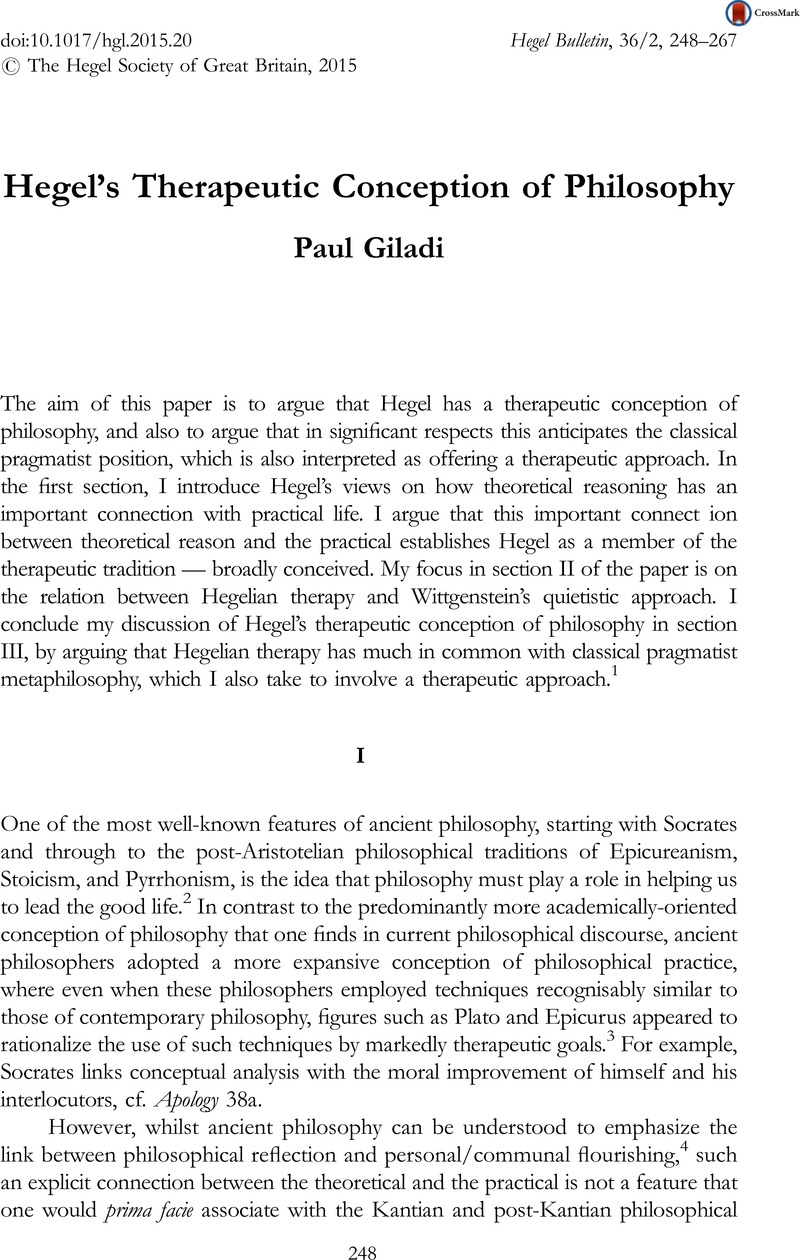Crossref Citations
This article has been cited by the following publications. This list is generated based on data provided by Crossref.
de Vries, Willem
2020.
The Palgrave Hegel Handbook.
p.
541.
Spiegel, Thomas J.
2021.
Quietism, Agnosticism and Mysticism.
p.
17.
Gregson, William
2023.
The Sociality of Madness: Hegel on Spirit's Pathology and the Sanity of Ethicality.
Hegel Bulletin,
p.
1.



